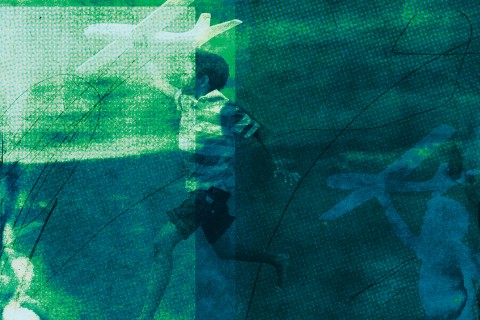French faith groups hope for unity after presidential vote
Paris (ENInews)--Faith groups in France revealed marked political differences in voting surveys ahead of the May 6 presidential election, but many now hope that victor François Hollande will uphold the "values of the republic" during his mandate.
Hollande, a socialist, beat incumbent Nicolas Sarkozy with 52 percent of the vote and promised unity, justice, equality and "exemplary" behavior, principles that some religious groups had called for ahead of the election.
"We don't wish to express any opinion on the result, but there is a satisfaction when our values are evoked by the future president of the country," said Muriel Menanteau, a spokesperson for the Protestant Federation of France, which represents more than 800,000 of the 1.2 million Protestants in the country.
The federation had held a meeting with Hollande during the campaign because of his support of secularism and had given him a document calling for a return to facts and accuracy by "leaders in the political, economic and social spheres." It also implicitly criticized the targeting of immigrants and Muslims that had taken place in the run-up to the two rounds of the elections.
"In dehumanizing strangers, France dehumanizes itself since it casts aside the principles that form its real identity: hospitality and fraternity," the Federation said.
During his campaign, Sarkozy promised, if re-elected, to halve the annual number of immigrants to France and increasingly assumed the anti-immigrant stance of Marine Le Pen, the leader of the far-right National Front party who came third in the first round of voting on April 22.
But Sarkozy's appeal to the 6.2 million people who voted for Le Pen failed as many followed her example and cast blank ballots.
Socialist politicians and voters, meanwhile, rejected what they said was as an attempt to divide France. Hollande, speaking at a rally on May 4 in France's northeast region where Le Pen did well in the first round, said that he did not want a France that was "divided between religions." In his one televised debate with Sarkozy, Holland expressed astonishment that the president equated immigration with Muslims or Islam.
"What makes you suppose that non-European immigrants are Muslims? What makes you say that?" he asked Sarkozy when the president seemed to use immigrants and Muslims interchangeably.
Sarkozy responded that immigrants from predominantly Muslim nations were a "reality" for France, and that it was "absolutely necessary" to have "an Islam of France and not an Islam in France."
Critics said his language was a means to get votes but in the end only served to repel centrist voters.
"He did not deal with the real issues in France," said Kaoutar, a French-Moroccan woman who was following the election results but declined to give her last name. "Speaking about halal meat was a way to hide the real problems. And this disgusted many people."
Analysts say French voters tend to be split almost evenly between the Right and Left, though pre-election polls this year suggested that a majority of Christians and Jews would vote for Sarkozy, while Muslims would vote largely for Hollande.
Father Bruno Lefevre-Pontalis, a priest at the Catholic church of Saint-Léon, acknowledged that some Catholics preferred Sarkozy. Speaking outside his church, near a polling station, he added that "the important thing now is unity."





